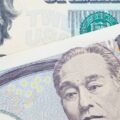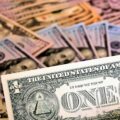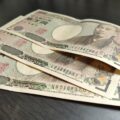Japanese Policymakers Respond To SVB Collapse, Downplay Contagion Risk

The recent collapse of Silicon Valley Bank (SVB) has sent shockwaves through the financial markets around the world, raising fears of a contagion that could spread to other banks. However, in Japan, policymakers have sought to downplay the risk of the collapse of SVB having a significant impact on the already fragile economic recovery.
Japan’s Economic Resilience
On Tuesday, Japanese policymakers downplayed the possibility of the economy being affected by U.S. lender Silicon Valley Bank’s failure. This assurance comes even though financial stocks have decreased and Japanese share prices have dropped.
During a news conference, Economy Minister Shigeyuki Goto stated that the government was tracking potential repercussions on the Japanese economy. However, they did not anticipate a significant effect from the bank’s bankruptcy.
Shunichi Suzuki, the nation’s Finance Minister, reiterated that the chances of Japan’s financial system being affected by Silicon Valley Bank’s failure are “minimal.” During a press conference, he stated, “We are experiencing some risk-averse movements in the market; however, the Japanese financial system is stable.”
Tuesday saw Japanese financial stocks suffer their biggest plunge since the start of the coronavirus crisis. This incident indicates that investors anxiously assessed the potential danger to commercial banks due to the large amount of U.S. Treasury securities they hold.
The decline of banking shares and an increase in the perceived safe-haven Yen led to the Nikkei average falling by almost 2%, causing worry for businesses as the fiscal year ends on March 31st.
Will Kazuo Ueda Lower the BoJ’s Stimulus Package?
Amidst the market volatility, much attention is on the forthcoming leadership change at the Bank of Japan, where Kazuo Ueda will assume the role of governor next month. Speculation is rife about how soon Ueda will begin lowering the BoJ’s comprehensive stimulus package.
This includes its bond yield curve control (YCC) policy, which caps the yield on 10-year Japanese government bonds at 0.50%. Predictions are that the YCC could be withdrawn or reduced soon due to rising inflation and interest rates.
The demand for Japanese government bonds (JGBs) as a haven has driven the 10-year yield down to 0.24%. This has prompted some analysts to suggest that Japan’s apex bank might not need to rush to adjust its yield curve control (YCC) policy.
Nobuyasu Atago, ex-BoJ official and current chief economist of Ichiyoshi Securities in Japan, commented. He said, “the decrease in JGB rates gives the BOJ more opportunity to consider how to modify YCC.”
He added, “the Bank of Japan cannot remain inactive for a prolonged period. If there is a slowdown in the United States economy, it would adversely impact Japan’s economic standing. Thus, requiring the BoJ to create methods of providing further stimulation, which is a challenging task as interest rates in Japan are already at zero.”
The BoJ and the FSA’s responses come as Japan’s economy struggles to recover from the COVID-19 pandemic. Although Japan’s economy has seen some positive signs in recent months, the nation still faces deflation and weak consumption rates.
The collapse of SVB, the largest bank in the U.S. with a presence in Japan, could put further pressure on the already fragile economy.


















